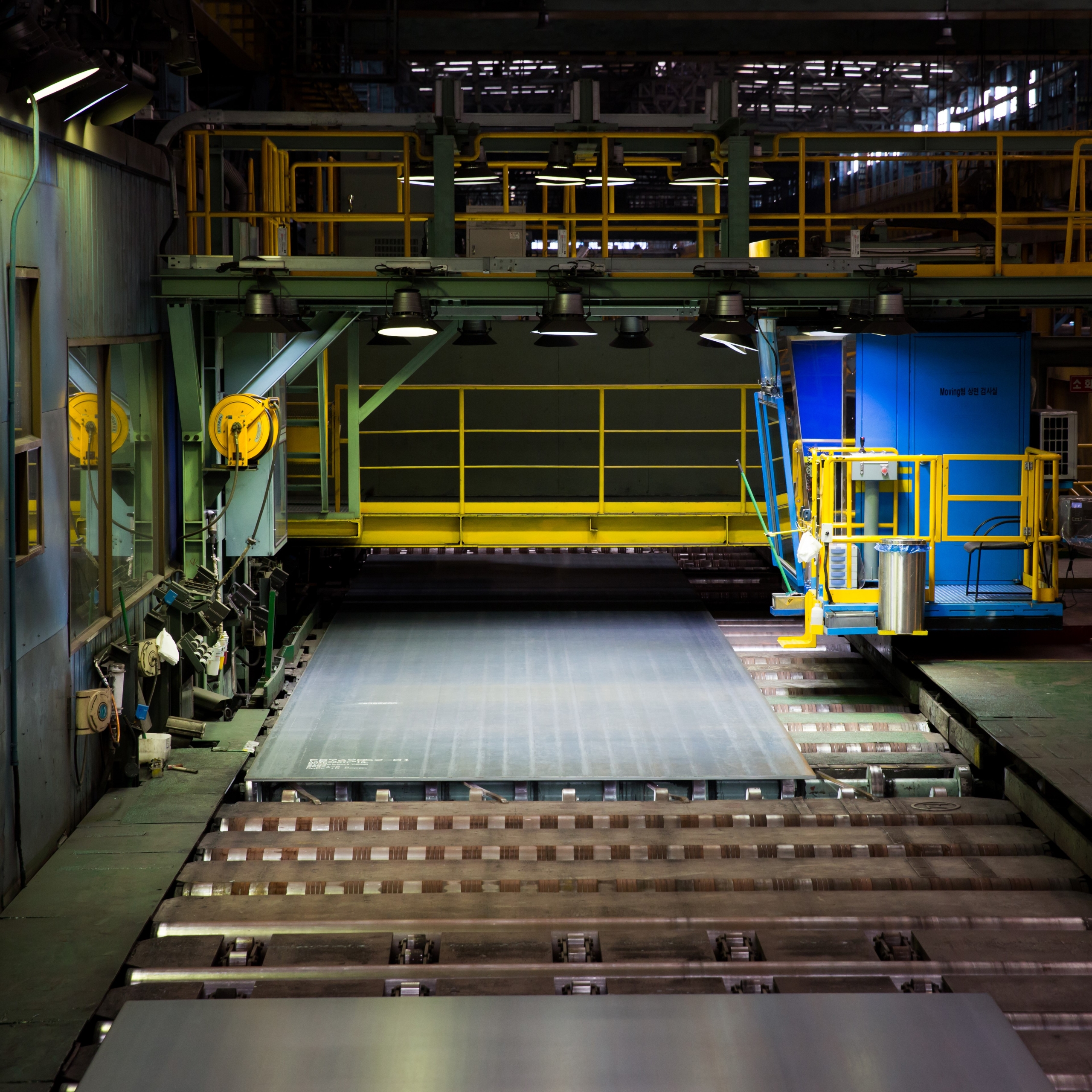ASTM A387/A387M Cr-Mo Alloy Steel Plates for Pressure Vessel
ASTM A387/A387M chromium-molybdenum (Cr-Mo) alloy steel plates are engineered for use in pressure vessels and boilers operating under high-temperature and high-pressure conditions. These steel plates, available in multiple grades including Grade 2, Grade 12, Grade 11, Grade 22, Grade 5, Grade 9, Grade 91, and Grade 21, offer excellent mechanical properties such as high tensile and yield strength, which ensure superior performance in demanding environments. The unique chemical composition, featuring elements like chromium and molybdenum, provides exceptional resistance to thermal stress, oxidation, and corrosion, making these plates ideal for applications in the petrochemical, oil and gas, power generation, and chemical processing industries. Their ability to maintain structural integrity under extreme conditions makes them a preferred choice for manufacturing pressure vessels, heat exchangers, boilers, and other critical industrial equipment. By adhering to strict quality standards, ASTM A387/A387M Cr-Mo alloy steel plates deliver reliable and durable solutions, ensuring safety and efficiency in industrial operations.
Chemical Composition of ASTM A387/A387M Cr-Mo Alloy Steel Plates for Pressure Vessel
| Element |
Grade 2 |
Grade 12 |
Grade 11 |
Grade 22 |
Grade 5 |
Grade 9 |
Grade 91 |
Grade 21 |
| Carbon |
0.05-0.15 |
0.05-0.15 |
0.05-0.15 |
0.05-0.15 |
0.05-0.15 |
0.05-0.15 |
0.08-0.12 |
0.05-0.15 |
| Manganese |
0.30-0.60 |
0.30-0.60 |
0.30-0.60 |
0.30-0.60 |
0.30-0.60 |
0.30-0.60 |
0.30-0.60 |
0.30-0.60 |
| Phosphorus |
0.035 max |
0.035 max |
0.035 max |
0.035 max |
0.035 max |
0.035 max |
0.020 max |
0.035 max |
| Sulfur |
0.040 max |
0.040 max |
0.040 max |
0.040 max |
0.040 max |
0.040 max |
0.010 max |
0.040 max |
| Silicon |
0.50 max |
0.50 max |
0.50 max |
0.50 max |
0.50 max |
0.50 max |
0.20-0.50 |
0.50 max |
| Chromium |
0.50-0.65 |
0.80-1.15 |
0.80-1.15 |
1.90-2.60 |
0.90-1.20 |
8.50-10.50 |
8.00-9.50 |
2.00-2.60 |
| Molybdenum |
0.45-0.65 |
0.45-0.65 |
0.45-0.65 |
0.90-1.10 |
0.45-0.65 |
0.90-1.10 |
0.85-1.05 |
1.00-1.50 |
| Vanadium |
– |
– |
– |
– |
– |
0.18-0.25 |
0.18-0.25 |
– |
| Nickel |
– |
– |
– |
– |
– |
– |
0.40 max |
– |
Mechanical Properties of ASTM A387/A387M Cr-Mo Alloy Steel Plates for Pressure Vessel
| Property |
Grade 2 |
Grade 12 |
Grade 11 |
Grade 22 |
Grade 5 |
Grade 9 |
Grade 91 |
Grade 21 |
| Tensile Strength, MPa |
380-550 |
380-550 |
415-585 |
415-585 |
415-585 |
415-585 |
585-760 |
415-585 |
| Yield Strength, MPa |
230 |
230 |
240 |
205 |
205 |
205 |
415 |
205 |
| Elongation in 50 mm, % |
22 |
22 |
22 |
18 |
18 |
18 |
18 |
18 |
Specification
| Standard |
ASTM A387/A387M Cr-Mo Alloy Steel Plates for Pressure Vessel |
| Steel Grade/Material |
Grade 2, 12, 11, 22, 22L, 21, 21L, 5, 9 and 91 |
| Dimension |
T 5-350mm × W 900-4100mm × L 3000-25000mm |
| Packing |
Packed with steel-framed plywood pallets |
| Supply Conditions |
AR = as-rolled TM = thermo-mechanical controlled processing CR = controlled QT = quenched and tempered N = normalized |
| Place of Origin |
Made in China |
| MOQ |
50 Tons |
| Transportation |
Railway, By Sea |
Applications of ASTM A387/A387M Cr-Mo Alloy Steel Plates for Pressure Vessel
ASTM A387/A387M chromium-molybdenum (Cr-Mo) alloy steel plates are designed for use in high-temperature and high-pressure environments. They are widely used in industries where durability, heat resistance, and strength are crucial.
Pressure Vessels: Ideal for the construction of pressure vessels that operate at elevated temperatures, such as those used in the chemical and petrochemical industries, where the materials need to withstand high-pressure conditions and corrosive environments.
Boilers: Used in the fabrication of boilers, particularly those that are exposed to high temperatures, to enhance thermal resistance and efficiency, making them suitable for power plants and industrial heating systems.
Heat Exchangers: Employed in heat exchangers that require excellent thermal conductivity and the ability to handle significant temperature variations, common in refineries and chemical processing plants.
Oil and Gas Industry: Applied in components of the oil and gas industry, including processing equipment and storage tanks, which require materials that can withstand harsh conditions and resist hydrogen attack and sulfide corrosion.
Power Generation: Utilized in power generation facilities for components like superheaters and reheaters, where high creep resistance and strength at elevated temperatures are necessary.
Petrochemical Reactors: Used in petrochemical reactors and related equipment, where they must maintain structural integrity under high temperature and pressure while resisting corrosion and oxidation.
Industrial Furnaces: Suitable for parts of industrial furnaces, such as linings and covers, where materials must endure high temperatures and corrosive atmospheres.




